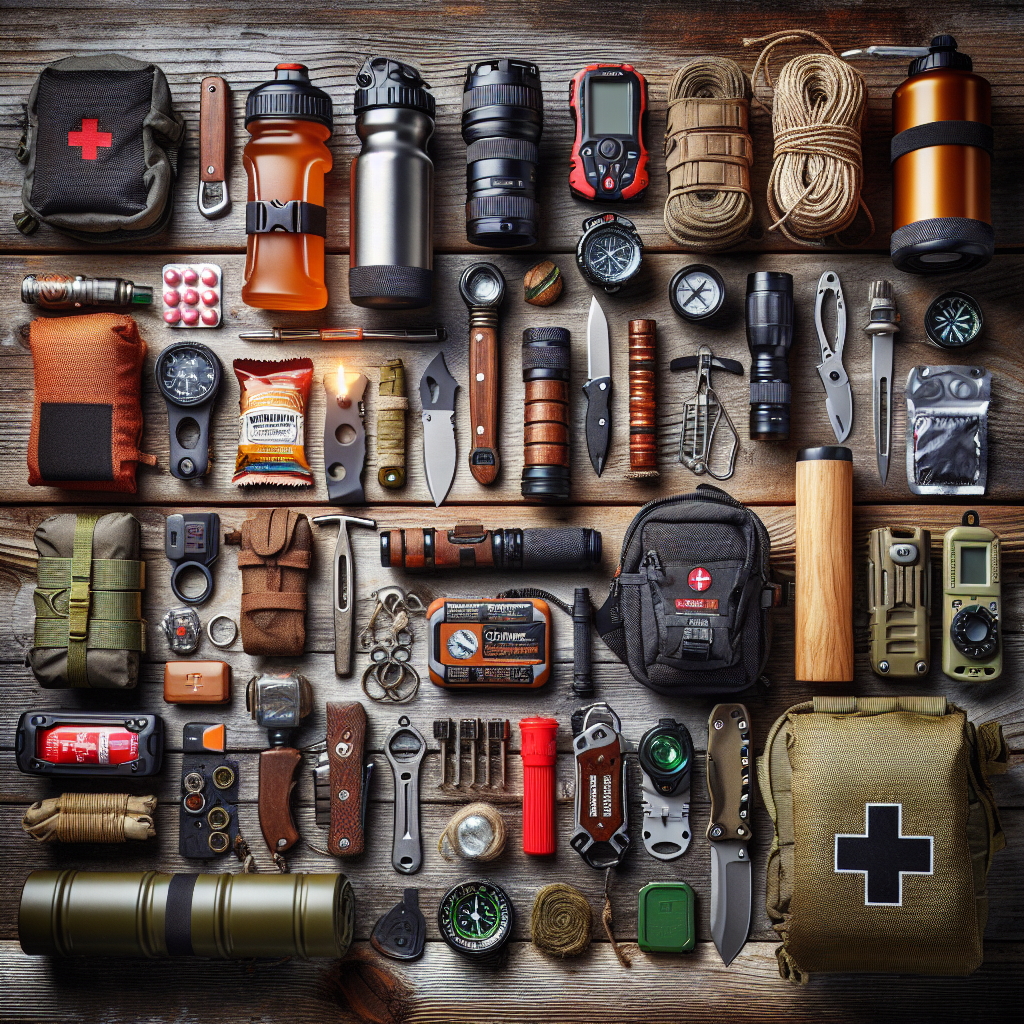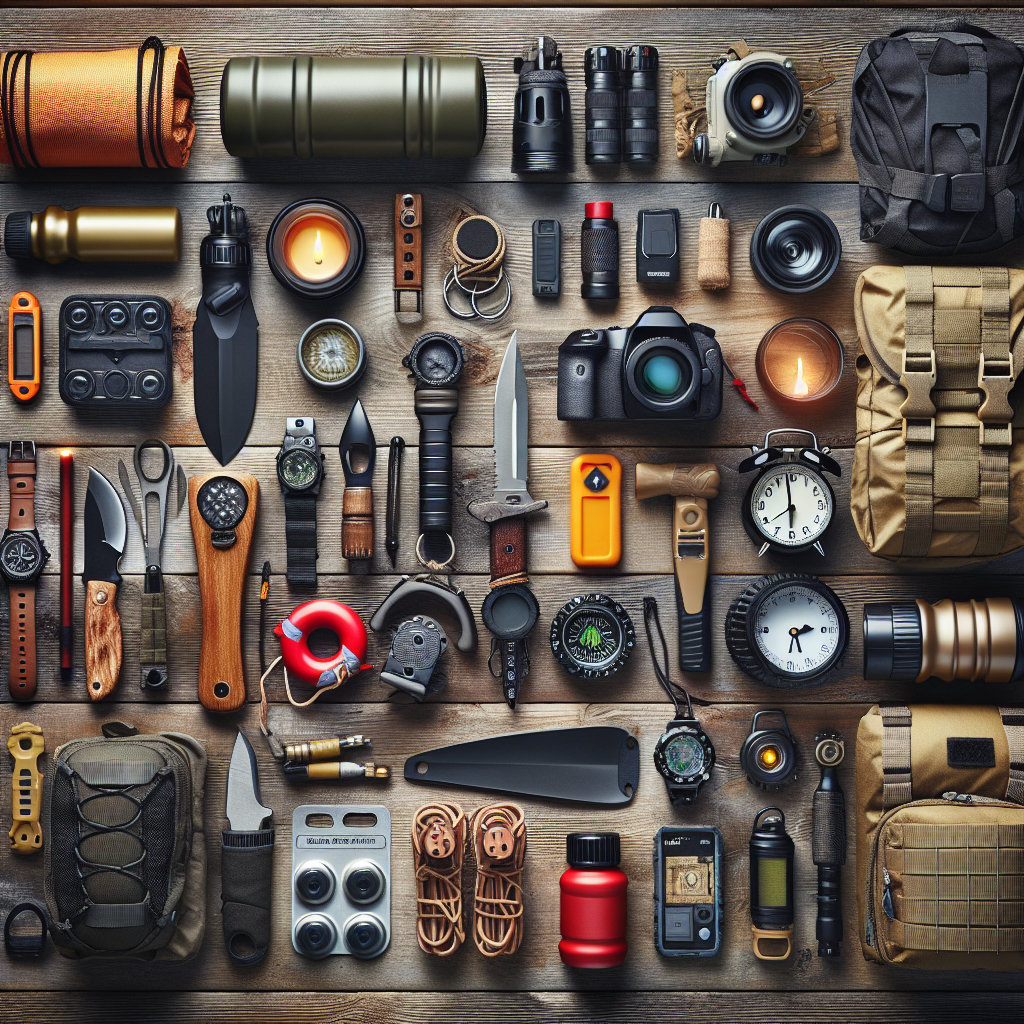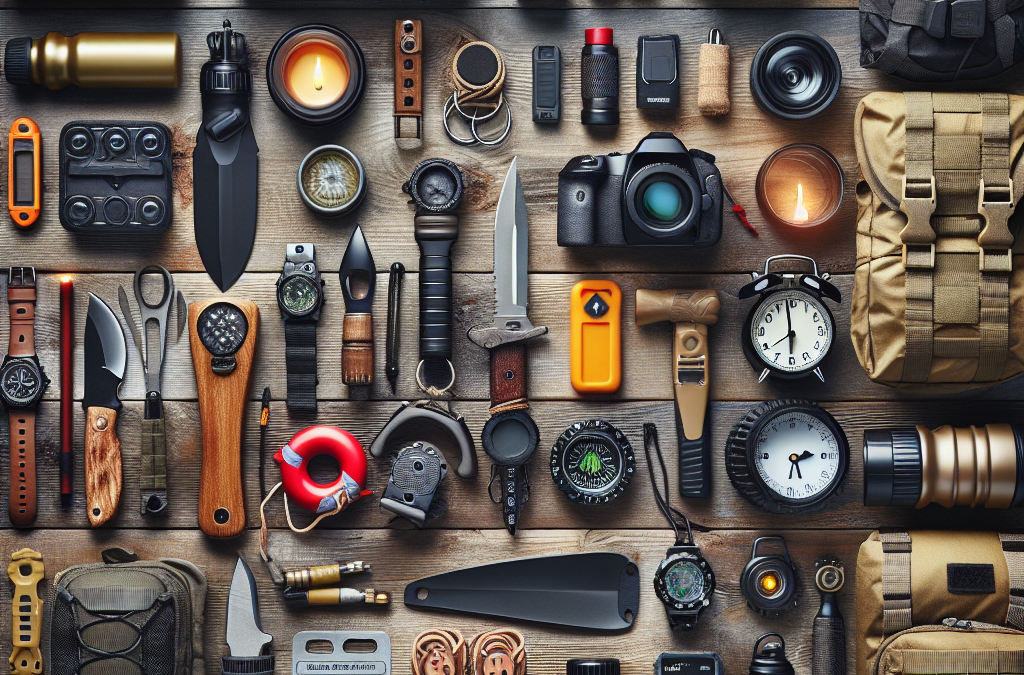If you’re the thrill-seeking type who relishes the beauty and challenges of the great outdoors, “The Ultimate Guide to Outdoor Survival Gear” has fueled up to be your perfect companion. This comprehensive guide wields an impressive arsenal of information, all honed to help you master the wilderness. Delighting in nature doesn’t mean leaving safety behind, so strap up for an exciting trek through reviving the primordial instincts within you and equipping you with the best survival gears fit for your outdoor adventures.
Understanding the Essentials of Outdoor Survival
Outdoor survival is not just about tackling the wilderness; it’s a skill set that everyone should have, whether you’re planning to camp in the forest or hike through mountains. Having outdoor survival skills can make a huge difference during an emergency or disaster.
Importance of Outdoor Survival Skills
Survival skills are essential as they equip you with the confidence and the knowhow to endure in unexpected situations or disasters. These abilities might save your life or the lives of others when it comes to guiding and looking after oneself in the wilderness, coping with tough circumstances, or surviving for prolonged periods outdoors.
Basic Survival Principles
The essentials of outdoor survival are based on a set of basic principles. These include the ability to seek shelter, find water, create a fire, source food, accurately read a map or compass, and provide basic first aid treatment. Mastering these principles can significantly increase your odds of survival in challenging outdoor conditions.
Core Aspects of Survival
Survival, at its core, is about staying alive. This includes understanding your basic human needs: warmth, water, food, and shelter. The essence of survival also includes knowing how to signal for help and navigate through different terrains. Most importantly, a positive mental attitude cannot be underestimated as it can boost your morale and enhance decision-making abilities in critical situations.
The Role of Survival Gear
The right survival gear is crucial for your safety and survival in the wilderness. It can greatly enhance your outdoor experience overall.
How Survival Gear Enhances Outdoor Experience
Having the right survival gear makes it safer and more convenient for individuals to venture outdoors. For instance, carrying a suitable shelter can save time in sourcing natural materials and provides protection against harsh weather conditions. In addition to this, access to fire-making tools quickly helps with cooking, keeping warmth, or warding off predators.
Common Misconceptions about Survival Gear
There are misconceptions about survival gear, like the notion that one must have the most expensive gear for successful survival. However, that’s not true. You don’t need the latest high-tech gear, even simple and multi-purpose tools can get you through most situations. Remember, in survival situations, it’s more about the skills and knowledge you possess than the gear you carry.
Essential Vs. Non-Essential Gear
While assembling your survival gear, it’s crucial to differentiate between essential and non-essential items. Essential gear like a shelter, fire-starting tools, water purification devices, and first aid kits should be your top priority. Meanwhile, non-essential items like heavy cooking items or extra clothing should be kept minimal to lighten your load during travel.

Navigation Tools
Proper navigation is key to outdoor survival. Your tools should consist of a combination of traditional navigation tools like maps and compasses complemented by advanced tools like GPS devices.
Maps and Compasses
A topographical map and compass are the basic tools for navigation and direction in the wild. They are lightweight, extremely reliable, and require no power sources, making them ideal for outdoor journeys.
GPS Devices
GPS devices provide an easy and handy way to track your progression and maintain your bearing. Although they require a power source, modern GPS devices are very accurate, making them a worthy addition to your survival kit.
Binoculars
Binoculars aid you in prospecting your surrounding area for resources or potential hazards. While not wholly essential, they can provide enormous advantages when traversing strange or complex terrains.
Understand Landmarks and Terrain
The ability to interpret landmarks and terrain features, in conjunction with the use of a map and compass, is fundamental for cross-country navigation. It’s a crucial skill that could make all the difference if you get lost or disoriented in the wilderness.
Shelter and Bedding
Your survival can significantly hinge on your shelter and bedding situation. The primary goal of a shelter is to offer protection from harsh weather and other elements of nature.
Tents and Bivvies
Tents provide great protection against the elements and are simple to set up. Bivvies, on the other hand, are smaller and lighter than tents, making them ideal for backpacking trips where weight is a concern.
Sleeping Bags and Pads
A good sleeping bag and pad are crucial to keeping you warm and comfortable during the night. Be sure to select a bag that is suitable for the expected minimum temperature of your destination.
Utilizing Natural Shelter
In a survival situation, knowing how to use natural resources to provide shelter is an invaluable trait. Natural shelters, such as caves or overhanging cliffs, can serve as temporary protection.
Emergency Blankets
Emergency blankets, also known as space blankets, are lightweight and compact, but provide a great deal of warmth by reflecting body heat. They can form an essential part of any survival kit.

Water Purification and Storage
Drinking impure water out in the wilderness could lead to diseases. Hence, it’s imperative to have measures and tools for water purification and storage.
Portable Water Filters
Portable water filters are capable of eliminating nearly all waterborne bacteria and parasites, making water safe for consumption. They are small, lightweight, and require no power source.
Chemical Water Purifiers
Chemical purifiers use iodine, chlorine, or other chemicals to eliminate waterborne pathogens. While not as fast-acting as filter-based systems, they are easy to use and lightweight.
Hydration Packs and Bladders
Hydration packs, bladders, or even simple water bottles are essential for storing and carrying water.
Collecting and Storing Rainwater
In hascy conditions, knowing how and where to collect rainwater can be a lifesaver. There are various methods of collecting rainwater, from using natural depressions to creating rain traps with tarp.
Fire Starting Equipment
Fire plays a critical role in survival situations, as it provides warmth, cooks food and signals for help.
Matches and Lighters
Matches and lighters are standard tools for starting a fire. Waterproof matches or a lighter can be invaluable in wet conditions.
Fire Starters and Tinder
Fire starters, like magnesium fire starters or fire steel, can start a fire even in harsh conditions. Tinder, such as dry grass or commercially available tinder, catch fire easily and help to get a larger fire going.
Portable Stoves and Fuel
For those who rather not rely on making a traditional fire, portable stoves are a great option. They are easy to set up, use, and are particularly useful for cooking and boiling water.
Cooking and Boiling Water
Whether you’re using a traditional fire or a portable stove, knowing how to cook food and boil water is essential. Boiling is one of the most reliable ways to purify water and kill organisms that could cause illness.
Food Gathering and Preparation
Access to food is paramount for survival. Knowing the best ways to gather and prepare food is critical and could save your life.
Portable Food Packs
Portable food packs, like freeze-dried or dehydrated meals, come in handy when out in the wilderness. They are lightweight, easy to cook, and contain enough calories to support your energy needs.
Fishing and Hunting Gear
Small fishing kits or a basic snare wire can provide a means to catch food. It takes practice to get it right, but knowing how to fish or hunt is a worthwhile survival skill.
Edible Plant Identification
Surviving in the wild often depends on the food available around you. Understanding which plants are safe to eat and how to prepare them is critical to avoid ingesting poisonous species.
Cooking Utensils
Lightweight cooking utensils, such as a pot or pan, are a great addition to any survival kit. They make boiling water and cooking meals much easier.
First Aid and Medical Supplies
In the wild, you must be prepared to deal with medical emergencies. A well-stocked first-aid kit is invaluable in treating small wounds and injuries.
First Aid Kits
A basic first aid kit should include adhesive bandages, antiseptic wipes, tweezers, medical tape, and pain relievers. It becomes considerably easier to treat minor injuries with these at hand.
Personal Medications
If you’re on regular medications, always carry enough of them, plus some extra in case your return gets delayed.
Dealing with Hypothermia or Heatstroke
Recognizing and treating severe conditions like hypothermia and heatstroke is vital. Familiarizing yourself with the symptoms and treatments for these conditions could potentially save a life.
How to apply Basic First Aid
Besides carrying a first-aid kit, knowing how to use it is equally important. Basic skills like dressing a wound, CPR, or setting a splint can make a huge difference until professional help arrives.
Clothing and Personal Protection
Outdoor survival often relies on being equipped with the right clothing and personal protection gear.
Choosing the Right Clothing
Depending on the climate and the activity, it’s essential to wear layers, have moisture-wicking clothing, and insulation to stay warm.
Footwear for Different Terrains
The right footwear keeps you comfortable and prevents injuries while traversing different terrains. Always choose footwear that suits your activity and the weather conditions.
Protection Against Insects and Animals
Protections such as insect repellents or bear sprays are necessary for warding off pests and potential animal threats. It’s also important to learn how to respond in case of an encounter with a wild animal.
Weather Protection Gear
Rain jackets, sun hats, or gloves may seem trivial, but they provide crucial protection against the elements. Choose weather protection gear that’s appropriate for your destination’s climate.
Maintenance and Repair Gear
Finally, having the tools and knowledge to maintain and repair your gear can help it to last longer and perform better when you need it the most.
Multi-tools
A good multi-tool can serve you in countless ways, from cutting wire to opening cans or bottles. It’s a must-have for any survival kit.
Repair Kits and Duct Tape
Repair kits and duct tape take up little space but can help repair everything from tents to backpacks. With them, you can extend the life of your gear and prevent small hiccups from turning into major problems.
Knife and Blade Maintenance
Keep your knife blade sharp at all times. A dull knife can make tasks more difficult and increases the risk of injury from botched jobs.
Fixing Common Gear Breakdown
In extreme situations, knowing how to fix common gear breakdowns can keep you safe and improve your chances of survival. Hence, learning basic repair skills becomes vital.
To conclude, outdoor survival skills and the right gear do not just come handy during a calamity or disaster. They also instill you with a sense of confidence, self-reliance, and a deeper appreciation of nature’s strengths and threats. So, whether you are an adventurer or not, everyone can benefit from learning these skills.

